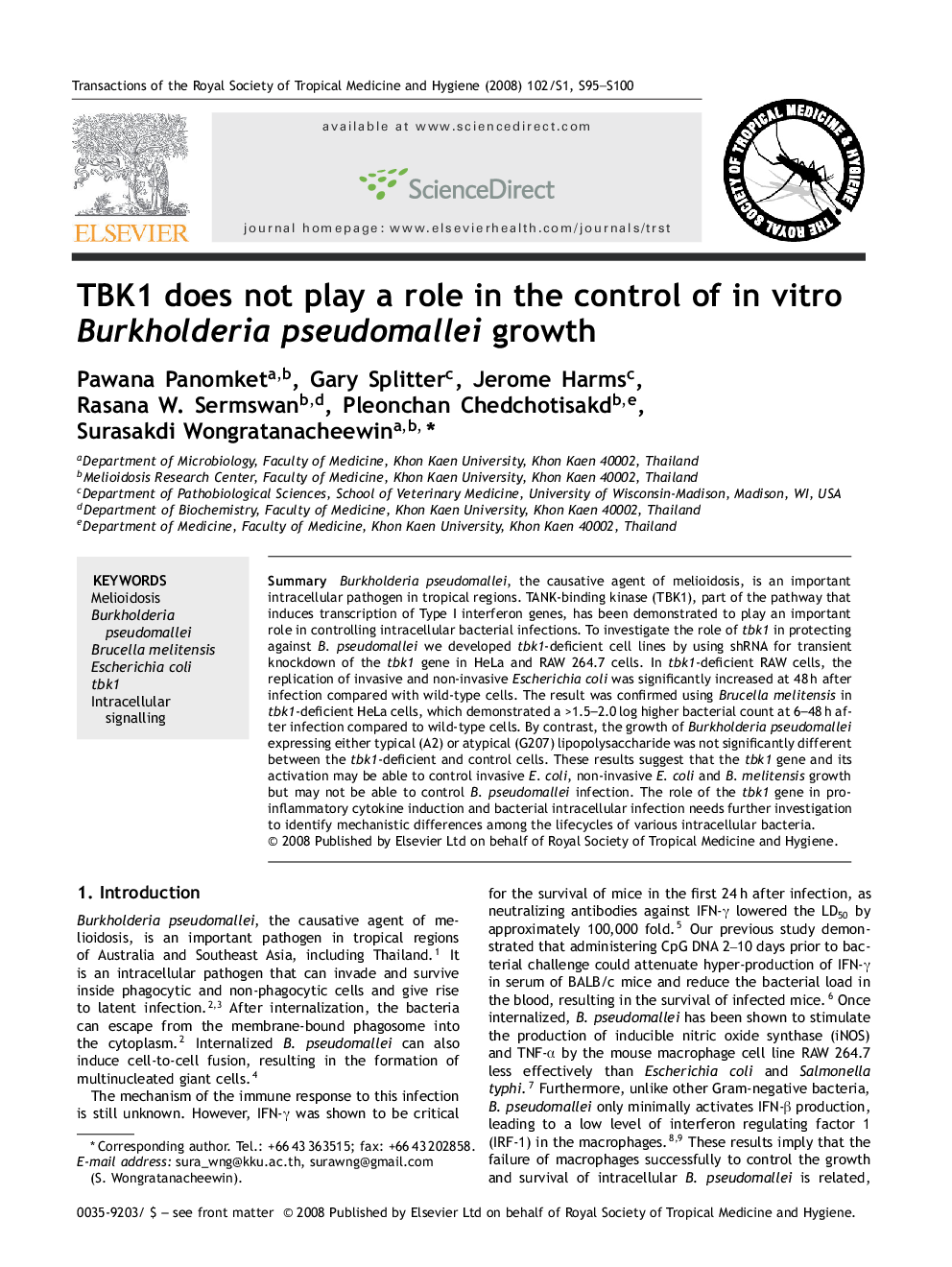| Article ID | Journal | Published Year | Pages | File Type |
|---|---|---|---|---|
| 3420910 | Transactions of the Royal Society of Tropical Medicine and Hygiene | 2008 | 6 Pages |
Abstract
Burkholderia pseudomallei, the causative agent of melioidosis, is an important intracellular pathogen in tropical regions. TANK-binding kinase (TBK1), part of the pathway that induces transcription of Type I interferon genes, has been demonstrated to play an important role in controlling intracellular bacterial infections. To investigate the role of tbk1 in protecting against B. pseudomallei we developed tbk1-deficient cell lines by using shRNA for transient knockdown of the tbk1 gene in HeLa and RAW 264.7 cells. In tbk1-deficient RAW cells, the replication of invasive and non-invasive Escherichia coli was significantly increased at 48h after infection compared with wild-type cells. The result was confirmed using Brucella melitensis in tbk1-deficient HeLa cells, which demonstrated a >1.5-2.0 log higher bacterial count at 6-48h after infection compared to wild-type cells. By contrast, the growth of Burkholderia pseudomallei expressing either typical (A2) or atypical (G207) lipopolysaccharide was not significantly different between the tbk1-deficient and control cells. These results suggest that the tbk1 gene and its activation may be able to control invasive E. coli, non-invasive E. coli and B. melitensis growth but may not be able to control B. pseudomallei infection. The role of the tbk1 gene in proinflammatory cytokine induction and bacterial intracellular infection needs further investigation to identify mechanistic differences among the lifecycles of various intracellular bacteria.
Keywords
Related Topics
Life Sciences
Immunology and Microbiology
Applied Microbiology and Biotechnology
Authors
Pawana Panomket, Gary Splitter, Jerome Harms, Rasana W. Sermswan, Pleonchan Chedchotisakd, Surasakdi Wongratanacheewin,
